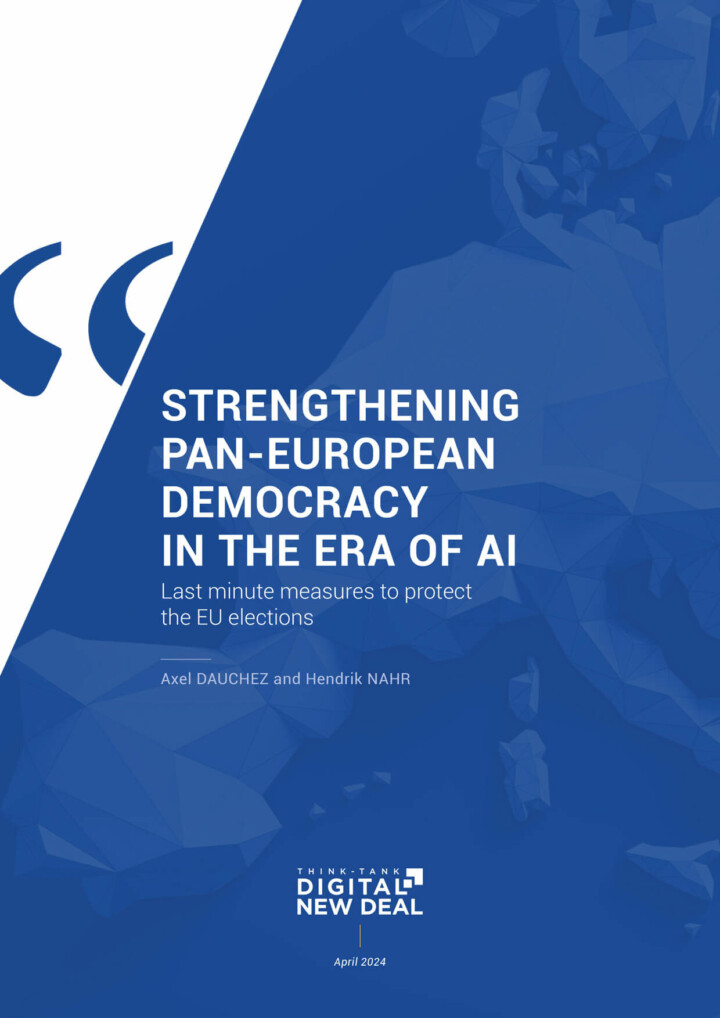The 2024 European elections coincide with unprecedented challenges posed by Artificial Intelligence (AI) and global election participation. Indeed, we are in the year of all dangers, with half of the world’s democracies voting in 2024 while a threat of massive manipulation looms. The danger of cyber-interference has never seemed so high as generative AI gives enemies of democracy unprecedented means of destabilization. In this context, the European elections are particularly crucial; they indeed represent a vast “democratic crash test” with potentially major geopolitical consequences.
« Mastering AI means mastering social media and therefore influencing elections »
This report, written by Axel Dauchez and Hendrik Nahr, highlights a series of concrete measures initiated in the European program “Democratic Shield” (an initiative by Make.org bringing together civil society players such as SciencesPo, Reporters Without Borders, France Digitale, Sopra Steria, Schuman Foundation, ACTE, Alliance4Europe, EU Disinfo Lab, DemocracyWatch, Mozilla, and Digital New Deal).
This paper explores the Shield’s measures on the basis of a workshop held on this topic at the European Economic and Social Committee in Brussels. It provides a deep dive into the measures of reinforcing the quiet period, creating innovative tools to protect the electoral period, promoting citizen consensus debates as well as stakeholders pledges. It underscores the urgency of proactive collaboration between civil society and institutions to safeguard democracy. As technology evolves, ongoing vigilance and adaptive strategies are essential. The paper offers insights into navigating AI’s impact on elections, urging every segment of society to unite in raising a Democratic Shield.
A closer look on measures :
- Promotion of the citizen consensus debate through technological tools.
- Code of conducts for European political parties and for media ensuring that fakenews is not relayed by these stakeholders
- Reinforcement of the quiet period to prevent deepfakes from toppling the elections in the last 48 hours (as happened in Slovakia).
- Classify advertising algorithms as “High-risk AI” (AI act) to impose transparency and certification on these AIs of social media platforms (which amplify the virality of fakenews to boost their revenues).

